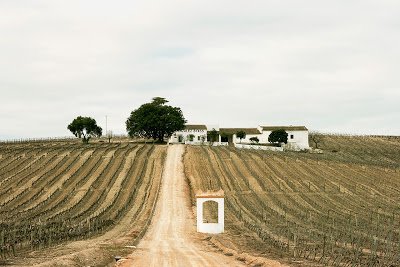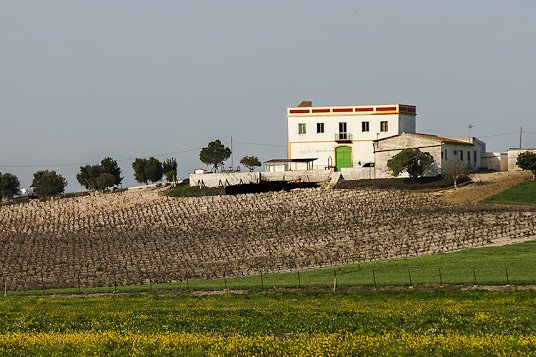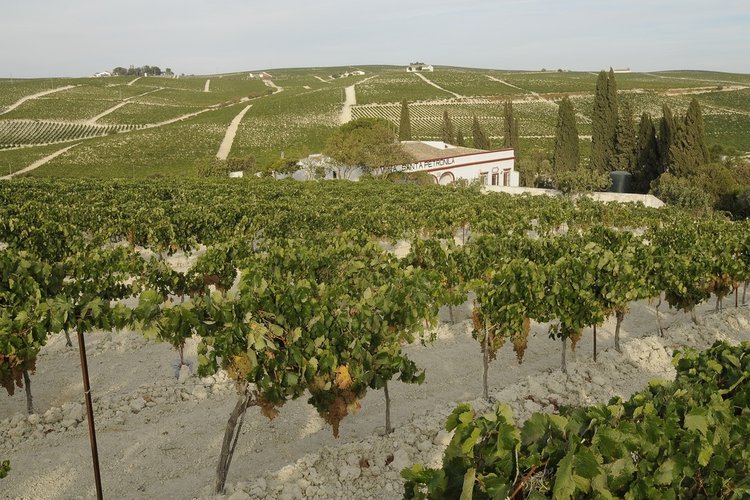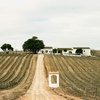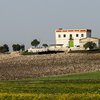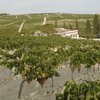For centuries it was important to have houses in the vineyards. These charming buildings, some grander than others, were mostly constructed between the XVII and XIX centuries. Many are shaded by fruit trees, palms or cypresses and once served as accommodation for workers, equipment stores, press-houses and occasionally holiday homes for the bodegueros and their families. There would be a well and an almijar, the large yard where the grapes were sunned before treading in the lagar, which was usually done at night when the grapes were cooler, postponing fermentation. Here the must was filled into butts for the journey to the bodegas in town.
In readiness for the harvest there was much activity: the almijar would be weeded and swept, the walls whitewashed and the lagar cleaned with water and a brush made from sprigs of thyme. The canastas, or harvesting baskets, made from olive twigs were repaired. It was important that their conical shape was maintained so the minimum number of grape bunches were pressing down on each other. The contents of one canasta, approximately one arroba (12 kilos), fitted perfectly on one redor, the round esparto mats on which the grapes were laid out to sun. After a hard day’s labour there was a simple but filling meal and often considerable merrymaking.
Nowadays many casas de viña are abandoned, victims of the onset of mechanisation in the 1960s, the uprooting of many vineyards and even urbanisation. The grapes are now mostly harvested nocturnally by machine and only very few are sunned to make sweet wines. They are taken by truck to the bodegas and processed there in mechanical presses and huge stainless steel fermentation tanks. While this achieves great control and consistency, there are some who feel that the old inconsistency was a virtue.
Not all the old vineyard houses have fallen into disuse, thank goodness. Some bodegas use theirs for entertaining and there are companies which rent them as peaceful retreats to holidaymakers. There is even a most interesting route round the casas de viña in the Pago Balbaina, details of which can be found at the website www.turismoelpuerto.com and further exciting vineyard activities can be found at www.rutadeljerezybrandy.es
